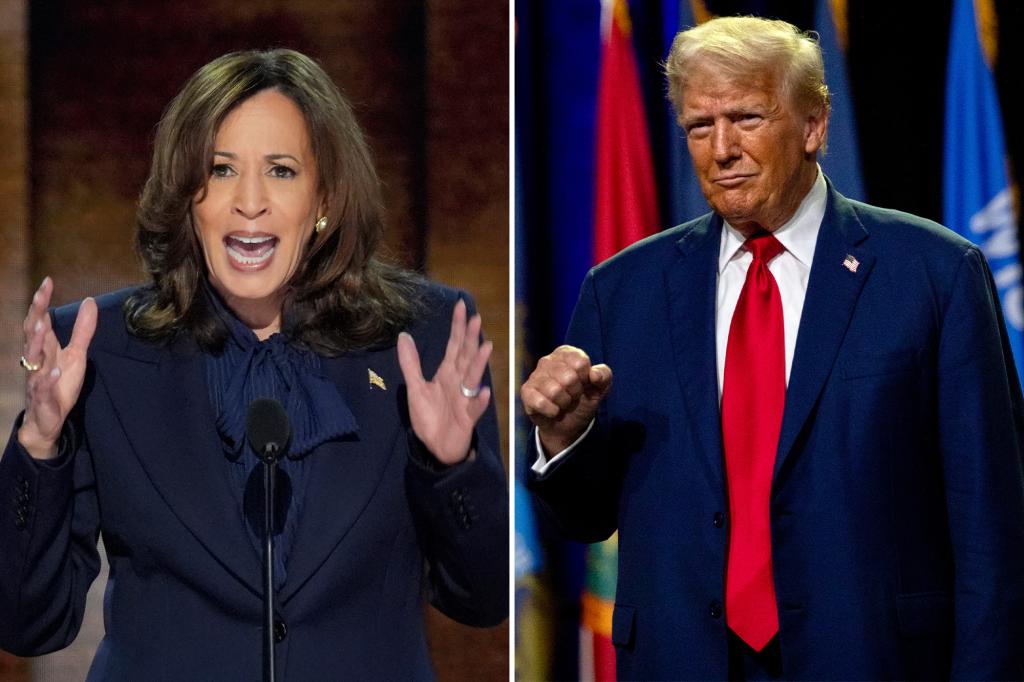Poll shows Trump slightly more popular than Harris in North Carolina.
Recent poll results from the pivotal swing state of North Carolina have revealed that former President Donald Trump is marginally more popular than Vice President Kamala Harris among voters. The findings have sparked discussions and analyses of the current political landscape in the state and the potential impact on future elections.
The survey, conducted by a reputable polling agency, showed that Trump holds a slight lead over Harris in terms of favorability ratings among North Carolina residents. This outcome has surprised many political analysts and experts who had predicted a different outcome considering the shifting dynamics in the state’s electorate.
North Carolina has been a closely contested battleground state in recent elections, with both Democrats and Republicans vying for support from its diverse population. The results of this poll indicate that Trump’s influence and appeal among voters in the state remain strong, despite his defeat in the 2020 presidential election.
One of the key factors contributing to Trump’s popularity in North Carolina is his focus on issues that resonate with many residents, such as job creation, economic growth, and national security. His “America First” agenda has struck a chord with a significant portion of the state’s electorate, particularly in rural and suburban areas.
On the other hand, Vice President Harris has faced challenges in connecting with North Carolina voters, with some critics pointing to her handling of various policy issues and her approach to key national and international issues. While Harris has made efforts to engage with voters in the state, her approval ratings have not reached the levels expected by the Democratic Party.
The poll results have sparked discussions within both the Democratic and Republican parties about the strategies and messaging that will be crucial in winning over North Carolina voters in future elections. With the state’s demographics and political landscape evolving, candidates from both parties will need to tailor their campaigns to address the concerns and priorities of local residents.
Analysts have also noted that the margin of difference between Trump and Harris in the poll is relatively small, indicating a highly competitive environment in North Carolina. Both parties are likely to intensify their efforts to sway undecided voters and mobilize their respective voter bases ahead of upcoming elections.
As North Carolina continues to play a pivotal role in national politics, the results of this poll serve as a reminder of the state’s significance in shaping the future of the country. With political divisions running deep and voter sentiment constantly evolving, candidates and policymakers will need to navigate a complex landscape to secure victory in this crucial swing state.
Overall, the poll results have illuminated the challenges and opportunities facing both Trump and Harris in North Carolina, setting the stage for a highly competitive and closely watched political battle in the state. The outcome of future elections in North Carolina will not only have implications for the state itself but could also influence the broader political landscape of the United States.








